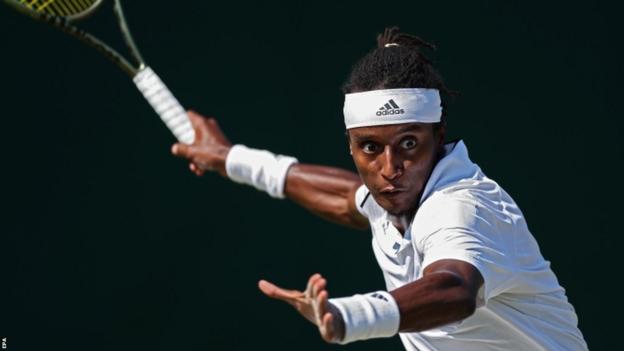Mikael Ymer says “my conscience is clear” after being banned for 18 months for an anti-doping rule violation.
In June 2022 an independent tribunal cleared him of failing to declare his whereabouts three times in 12 months.
The International Tennis Federation then lodged an appeal with the Court of Arbitration for Sport, which imposed a ban on the 24-year-old Swede on Monday.
“I find their decision to try me again and subsequently find me guilty unfair,” said the world number 51.
“On top of that, I find it difficult to comprehend that they found an 18-month suspension to be a just punishment.
“I understand that these rules have been put in place to protect the integrity of our sport, and that they are there for a reason.
“However, I do not believe I broke those rules, and my conscience is clear with God as my witness.”
Ymer accepted his first two whereabouts failures in April and August 2021 but contested his third failure, which came before an event in France in November 2021.
A statement by the Court of Arbitration for Sport (Cas) said that Ymer “was accommodated in a different hotel than the one he had requested when making his reservation, but the player’s agent (who updated the player’s whereabouts on his behalf) did not receive news of that change and therefore did not make the necessary update on that occasion.”
The first tribunal found that “no negligence could be attributed to the player or his agent”.
However, the Cas panel concluded Ymer “failed in ensuring his compliance” with anti-doping regulations “by assuming that any discrepancy between his actual and declared whereabouts would be corrected by his agent or by the tennis authorities”.
The ITF had requested a two-year period of ineligibility for Ymer but Cas determined he should serve an 18-month ban.
“The degree of fault of the player, a professional and experienced athlete, was high, although the third whereabouts failure could be described as the result of culpable negligence,” said Cas.


Click Here to Read the Full Original Article at BBC Sport – Tennis…

